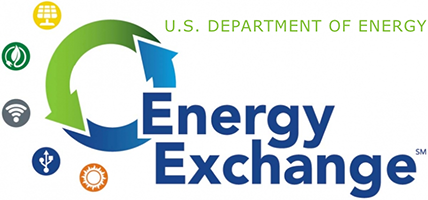Pittsburgh, PA

Decarbonization can take many forms, and considerations of effectiveness and resources available are key to building a comprehensive strategy for reducing emissions. Speakers will discuss a holistic approach to reducing or eliminating carbon emissions through options like integrating energy efficiency, exploring means to electrify end-use loads, and efforts to pursue carbon pollution-free electricity. Speakers will share strategies and processes for developing an overarching decarbonization approach as well as lessons learned for specific efficiency, electrification, and carbon-free approaches.
Instructors
Ann Miracle, Group Leader, Risk and Environmental Assessment, Pacific Northwest National Laboratory Read Bio
Dr. Miracle manages the Risk and Environmental Assessment Group at PNNL. Dr. Miracle has over 15 years of experience in preparing environmental assessment evaluations for the U.S. Department of Energy, Nuclear Regulatory Commission, and the Department of Defense. She has prepared single project and programmatic Environmental Assessments and Environmental Impact Statements as a subject matter expert in aquatic and terrestrial ecology, human health impacts, and cumulative impacts, and has had oversight of environmental assessment document preparation as the project manager for several Environmental Impact Statements. Dr. Miracle leads the capability development for environmental justice and stakeholder engagement associated with environmental and infrastructure projects and has had extensive experience in consistency review of complex NEPA documents, and preparation of NEPA procedural and supplemental documents.
Chad Baker, Director, Federal Programs, Schneider Electric Read Bio
Chad Baker is the Director of Federal Programs for Schneider Electric Federal. In this role, he leads development of strategic solutions and programs across all Schneider Electric Federal customer accounts. He joined the team in 2021 as the United States Air Force Strategic Account Manager. In this role, Mr. Baker worked for three years to establish a solutions-based portfolio aligned with Air Force interests in sustainability, efficiency, decarbonization, resilience, and mission sustainment. Mr. Baker has over 27-years of experience supporting federal programs, including the development and delivery of complex energy management and sustainability solutions across the DoD. He has acted as a subject matter expert embedded with the U.S. Navy, U.S. Army Office of Energy Initiatives, and the U.S. Air Force Civil Engineering Center for refinement of acquisition policy and procedures within third-party financed programs and development of market-aligned projects geared toward mission sustainment, decarbonization, and resilience.
Kristin Van Abel, Senior Technical Analyst & Professor of Policy Analysis, RAND Corporation Read Bio
Kristin Van Abel is a senior technical analyst at RAND and a professor of policy analysis at the Pardee RAND Graduate School. With a multidisciplinary background, Van Abel's research covers energy and environmental policy, Arctic policy, critical infrastructure, national security, and strategic and long-term planning. Van Abel is a skilled project leader who engages with strategic decisionmakers; develops analytic frameworks; performs analysis using qualitative and quantitative methods; and develops workshop plans and conducts facilitation of workshops, interviews, and focus groups. Prior to joining RAND, Van Abel supported strategic planning efforts to improve performance in the areas of energy, water, waste, supply chain management, transportation, and building infrastructure at the California Institute of Technology (Caltech). Van Abel holds a Master of Environmental Science and Management from the Bren School at the University of California Santa Barbara (UCSB) and a B.S. in Biological Sciences from UCSB.
Learning Objectives
Upon completion of this course, attendees will be able to:
- Identify strategies to achieve decarbonization;
- Recognize how to combine these diverse strategies for reducing or eliminating carbon emissions into a comprehensive decarbonization approach;
- Recognize location-specific factors to consider when creating decarbonization plans;
- Select best practices for implementing energy efficiency, electrification, and carbon pollution-free electricity.









